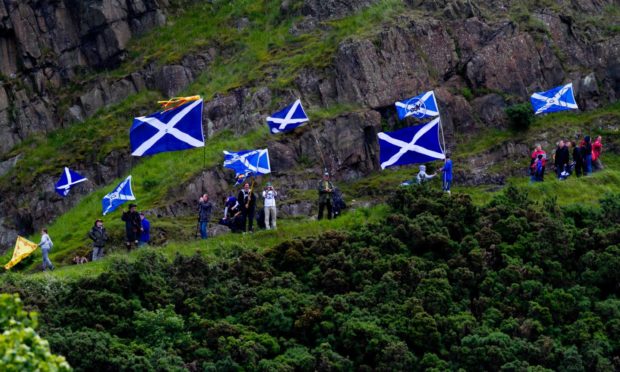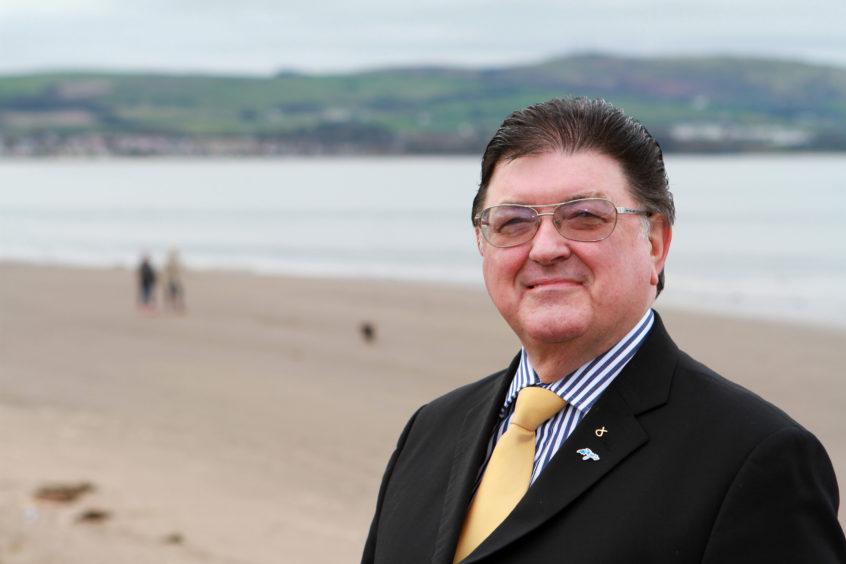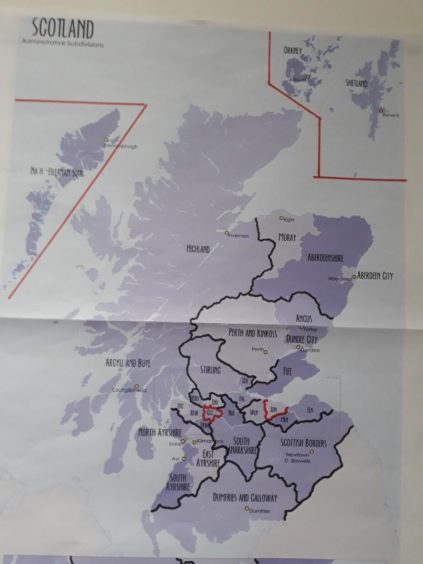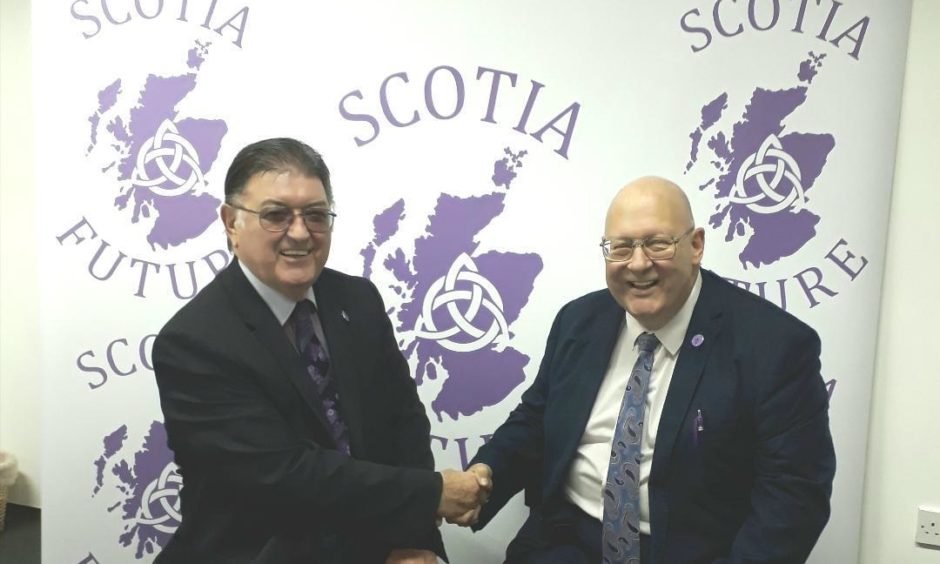A former SNP MSP has outlined his “radical” plan for a new Scottish senate made up of 15 federal councils, cities and isles as part of a “St Andrew’s Day vision for an independent Scotland”.
Chic Brodie, who represented South Scotland at Holyrood from 2011 to 2016, formed a new party called Scotia Future with former SNP colleague Andy Doig earlier this year to campaign for “real independence” outside the UK and European Union.
The party has now revealed a raft of constitutional policies as a vision of what a decentralised and federal Scotland could look like after independence, including a Glasgow-based house of representatives.
Under the proposal, which is based on the German model of federalisation, Scotland’s existing 32 local authorities would feed directly into the 15 new federal areas, who would be responsible for economic development and local emergency services.
But the plan is likely to raise eyebrows in some quarters, with Orkney, Shetland and the Western Isles being stitched together in one “federal isles” council, while Glasgow and Edinburgh would be the only cities granted “federal city” titles.
More than half of the west coast would be covered by a Highlands and Argyll and Bute super-council, stretching from John o’ Groats to Campbeltown. Aberdeen and Dundee would fall under boundaries similar to the Grampian and Tayside NHS board areas.
In full: the 15 federal council areas and what local authority areas they would include
- 15 Federal Councils, Cities, and Isles, of Scotland in the proposed Scottish Senate:
- The Federal Council of Dumfries, Kirkcudbright, and Wigtown – Dumfries & Galloway
- The Federal Council of Roxburgh, Berwick, Selkirk and Peebles – Scottish Borders
- The Federal Council of Ayrshire – North Ayrshire, South Ayrshire, East Ayrshire
- The Federal Council of Lanarkshire – North Lanarkshire, South Lanarkshire
- The Federal Council of Linlithgow, Haddington, and Midlothian – Mid Lothian, East Lothian, West Lothian
- The Federal City of Edinburgh – Edinburgh City
- The Federal City of Glasgow – Glasgow City
- The Federal Council of Renfrewshire and Inverclyde – Inverclyde, Renfrewshire, East Renfrewshire
- The Federal Council of Dunbartonshire – West Dunbartonshire, East Dunbartonshire
- The Federal Council of Stirling and Clackmannan – Stirling, Clackmannanshire, Falkirk
- The Federal Council of Fife – Fife
- The Federal Council of Perth, Kinross, and Forfar – Perth & Kinross, Dundee City, Angus
- The Federal Council of Inverness, Caithness, Ross and Cromarty, Sutherland, and Argyll – Highland, Argyll & Bute
- The Federal Council of Aberdeen, Kincardine, Moray, Banff and Nairn – Aberdeen City, Aberdeenshire, Moray
- The Federal Isles of Nordreyjar and Na h-Eileanan Siar – Orkney, Shetland, Na h-Eileanan Siar (Western Isles)
Mr Brodie said: “St Andrew’s Day is a very appropriate time not just to look back on Scotland’s past but to contemplate Scotland’s future. Scotia Future are revealing their St Andrew’s Day vision for an independent Scotland.
“One key policy will be to create a bi-cameral parliament with the senate in Holyrood, and a new house of representatives based in Glasgow.”
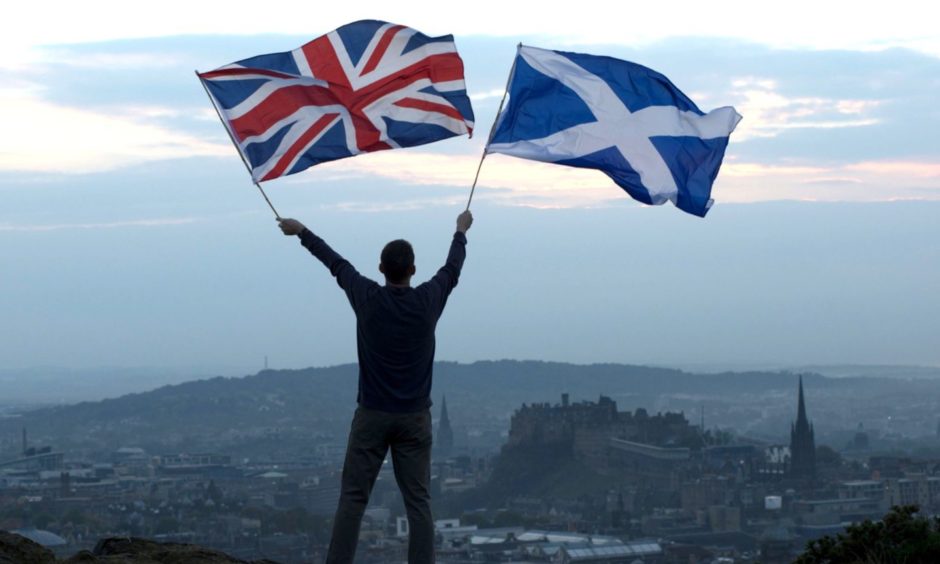
“We will also have a written Scottish constitution, with a bill of rights and responsibilities, a referendum on whether we have an elected or hereditary head of state, and decentralised government departments mainly to rural Scotland.
“And most important of all, we will sign up to a statement of independence which means a pro-independence majority of MSPs next year means Holyrood will call a referendum, no ifs or buts.”
Mr Doig, who represents Johnstone North, Kilbarchan, Lochwinnoch and Howwood on Renfrewshire Council, is nominating officer for Scotia Future.
He said: “I think there is a centralising culture now at Holyrood which has been really bad for our communities.
“We desperately need a new revising chamber, but also power back to local areas. Our vision of keeping the 32 local authorities but complementing them with 15 federal councils will turbo-charge local government.
“The 32 local authorities will feed directly into the 15 federal councils, who will promote a shared services agenda to save the 32 councils money, and be responsible for tourism, social work, fire and police, economic development, and elections to the Scottish senate.
“This is similar to the German model, which is the most effective federal system in Europe.”
